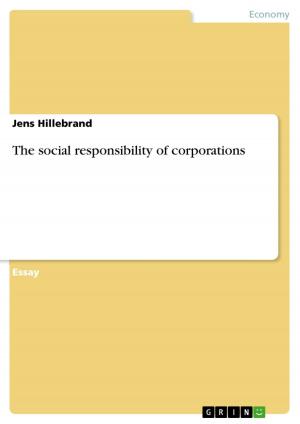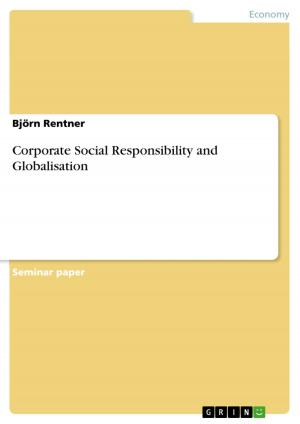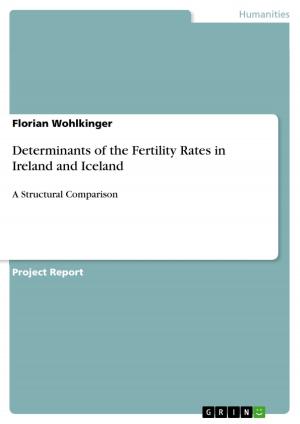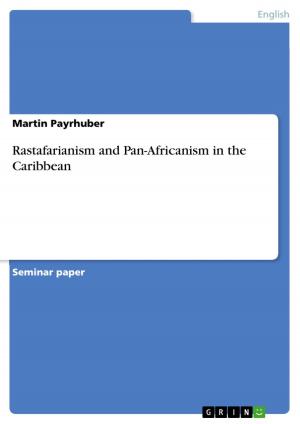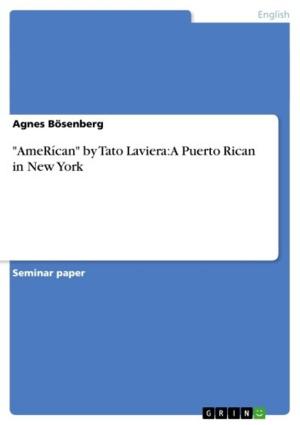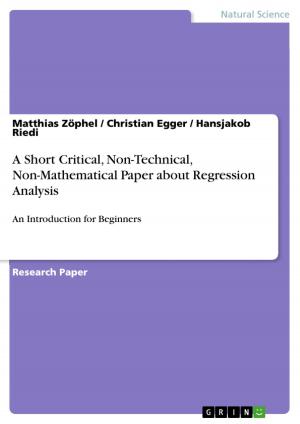Pidgins and Creoles and their Relevance to Linguistics with a special regard to Jamaican Creole
Nonfiction, Entertainment, Drama, Anthologies| Author: | Oezguer Dindar | ISBN: | 9783640704330 |
| Publisher: | GRIN Publishing | Publication: | September 14, 2010 |
| Imprint: | GRIN Publishing | Language: | English |
| Author: | Oezguer Dindar |
| ISBN: | 9783640704330 |
| Publisher: | GRIN Publishing |
| Publication: | September 14, 2010 |
| Imprint: | GRIN Publishing |
| Language: | English |
Seminar paper from the year 2009 in the subject English Language and Literature Studies - Linguistics, grade: 1,7, Humboldt-University of Berlin (Anglistik), course: Contact Languages, language: English, abstract: Contact languages such like pidgins and creoles were formerly considered as broken versions of older languages and therefore were called 'nigger French', 'bastard Portuguese' or 'broken English'. But since the end of the 19th century however linguists had begun to study these languages. Since then they have no been considered as broken forms of 'higher' languages but new languages with their own systems (cf. Holm 2001: 1). In this paper I will give a brief overview about the development of pidgin and creole studies in linguistics and how linguists try to draw new conclusions about the origins and evolution of languages and about language change in general by studying creole and pidgin languages. I will first define the terms jargon, pidgin and creole and then depict some theories about pidgins and creoles and illustrate in what way they could be relevant for the understanding of language in general. Secondly, I will point out some typical characteristics of the Jamaican Creole and try to relate the illustrated linguistic theories to Jamaican Creole. At the end of this paper I will briefly focus on the relevance of creoles and pidgins to sociolinguistics also on the basis of Jamaican Creole.
Seminar paper from the year 2009 in the subject English Language and Literature Studies - Linguistics, grade: 1,7, Humboldt-University of Berlin (Anglistik), course: Contact Languages, language: English, abstract: Contact languages such like pidgins and creoles were formerly considered as broken versions of older languages and therefore were called 'nigger French', 'bastard Portuguese' or 'broken English'. But since the end of the 19th century however linguists had begun to study these languages. Since then they have no been considered as broken forms of 'higher' languages but new languages with their own systems (cf. Holm 2001: 1). In this paper I will give a brief overview about the development of pidgin and creole studies in linguistics and how linguists try to draw new conclusions about the origins and evolution of languages and about language change in general by studying creole and pidgin languages. I will first define the terms jargon, pidgin and creole and then depict some theories about pidgins and creoles and illustrate in what way they could be relevant for the understanding of language in general. Secondly, I will point out some typical characteristics of the Jamaican Creole and try to relate the illustrated linguistic theories to Jamaican Creole. At the end of this paper I will briefly focus on the relevance of creoles and pidgins to sociolinguistics also on the basis of Jamaican Creole.





